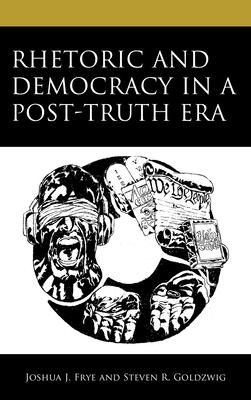Rhetoric and Democracy in a Post-Truth Era offers a timely examination of public communication and political culture in the United States and the systemic feedback loops that have amplified democratic dysfunction and violence. Informed by both deductive and inductive analysis of four key perils (post-truth; polarization; [social media] platform; and populism) in the interplay of complex systems, Joshua J. Frye and Steven R. Goldzwig examine rhetorical traditions and trajectories to synoptically explain both how we got to this point and how we can fix it. Exploring salient and increasingly important issues affecting the public life and culture of American democracy and democracies worldwide, this work expands public understanding of the current political landscape, reveals what effective democratic citizenship requires, and identifies communication practices that can be used to better engage with these contemporary challenges. Scholars of communication, rhetoric, and political science will find this book of particular interest.

Rhetoric and Democracy in a Post-Truth Era
Rhetoric and Democracy in a Post-Truth Era offers a timely examination of public communication and political culture in the United States and the systemic feedback loops that have amplified democratic dysfunction and violence. Informed by both deductive and inductive analysis of four key perils (post-truth; polarization; [social media] platform; and populism) in the interplay of complex systems, Joshua J. Frye and Steven R. Goldzwig examine rhetorical traditions and trajectories to synoptically explain both how we got to this point and how we can fix it. Exploring salient and increasingly important issues affecting the public life and culture of American democracy and democracies worldwide, this work expands public understanding of the current political landscape, reveals what effective democratic citizenship requires, and identifies communication practices that can be used to better engage with these contemporary challenges. Scholars of communication, rhetoric, and political science will find this book of particular interest.